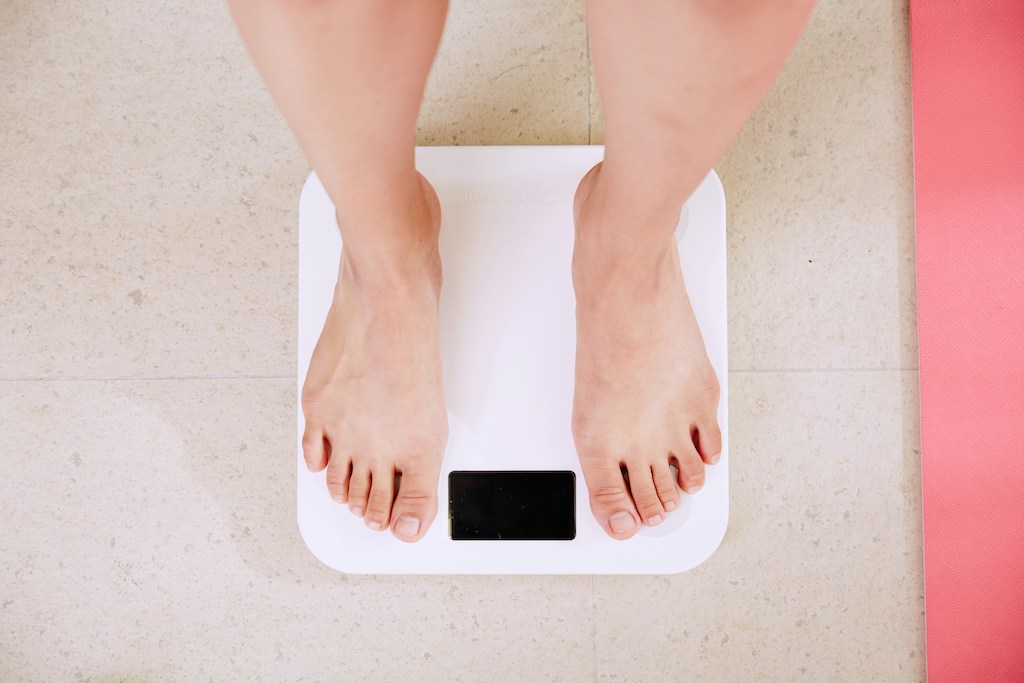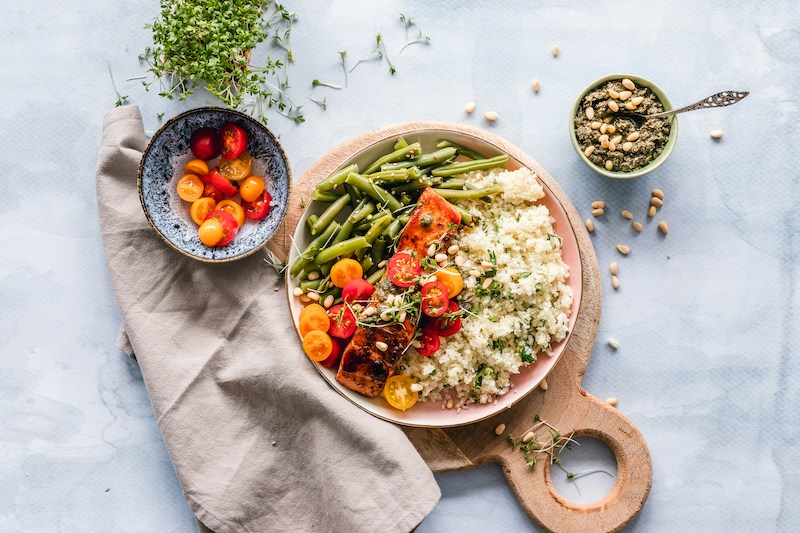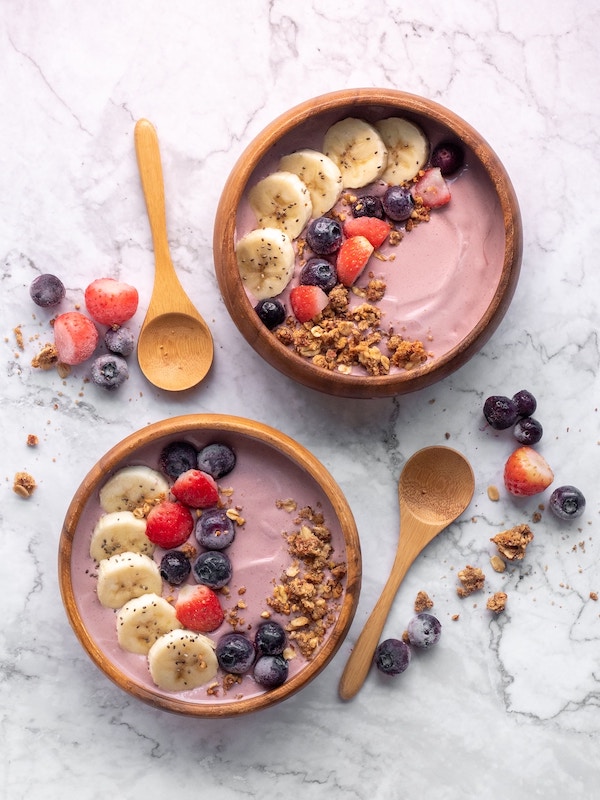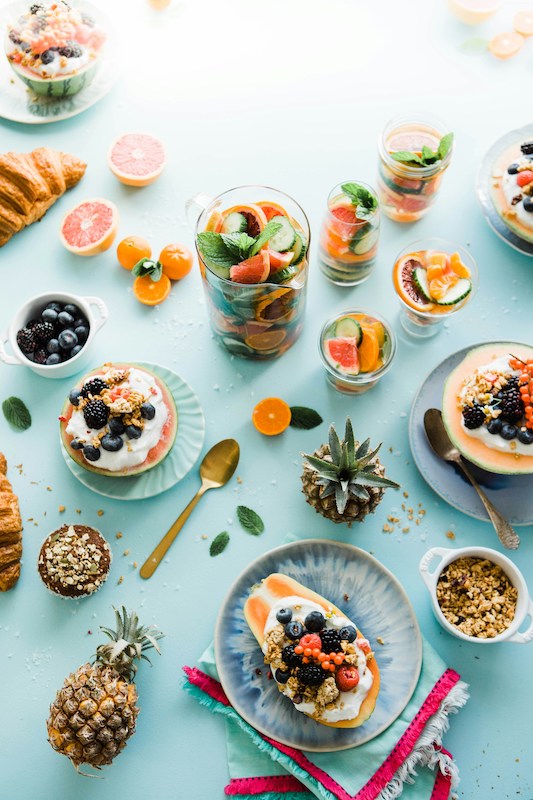For most of my life, I have had a love-hate relationship with food. Unfortunately, this made developing a healthy relationship with it quite challenging.
I love bread, pasta and baked goods. As a child, I found comfort in them. But as a teenager, I bashed myself for eating them, because I thought they made my body look different than I wanted it to look.
Like many women, my body changed rapidly during puberty. I went from a tall, thin girl to having wide hips and gaining what I considered a large amount of weight (stretch marks and all) in a short period of time. I asked my mom to pack different meals for my lunch. In my mind, the Hawaiian bread rolls were contributing to the “problem.”
Unfortunately, this was just the start. Over the next decade and a half, my relationship with food felt torturous at times. My subsequent journey to a healthy relationship with food took almost another decade. And it’s still a work in progress. But hopefully, the knowledge I gained and lessons I learned will help others, even if just one person.
My Unhealthy Relationship With Food
During my junior and senior year of high school, I went to the YMCA at 5 am to run on a treadmill for 30 minutes before school, thinking it would make me thin again. I wondered why my sister did not develop the hips I did and why she still looked “small.”
This unhealthy mindset lead to yo-yo dieting, restricting certain foods, and counting calories. I specifically remember my experience with Weight Watchers. I obsessively tracked my food points in an effort to eat at least one food I actually enjoyed each day.
During college, I overindulged in food and drank too much alcohol, which lead to greater weight gain, and consequently more shame.
At age 20, I was diagnosed with Polycystic Ovarian Syndrome (PCOS). This explained some of my issues with fast weight gain, but I basically chose to ignore the diagnosis.
After college, I spent a year trying to lose the weight I had gained during the prior four years. I accomplished it by increasing protein and decreasing carbohydrates. It felt less restrictive than diets from my past, but it did nothing to help my body image issues.

In my mid-twenties, I became what I considered thin for the first time since puberty. This occurred because law school consumed all of my thoughts and energy. The stress suppressed my appetite. When I did eat, I chose convenient foods over healthy options.
The stress continued after graduation. That summer, I studied for and took the bar exam, and then got married two weeks later. About a year after graduation, I learned I had pre-diabetes. The diagnosis would have made sense to me in college. But at the lowest weight of my adult life? How?
A large percentage of women with PCOS have insulin resistance, but I naively thought it only accompanied excess body weight. While I likely have a predisposition to blood sugar dysregulation, my chronic stress and poor diet played a large role. The chronic stress also worsens my PCOS symptoms and thus the insulin resistance, thereby perpetuating a vicious cycle.
Making A Change
Finally, at age 28, I made the decision to focus on true healing. But what did that entail?
First, I needed to reverse the pre-diabetes and minimize my PCOS symptoms. I had no idea how to accomplish that. So I started researching.
I read several books about PCOS, listened to God knows how many podcasts, and read countless articles and scientific studies on metabolic dysfunction. Then, I did a deep dive on food and nutrition, something I knew next to nothing about at that point.
Thereafter, I made a commitment to spend at least three months eating only whole foods, which felt quite daunting, because I didn’t even know how to cook!

Now, I had to research another new subject and develop an entirely new skill! Up to that point, my husband made all of our home-cooked meals.
During that same period of time, I quit my high stress, billable hour job as an attorney. Shockingly, my boss offered to let me stay on part-time. This allowed me to still earn an income while also devoting the necessary time to my health. This change alone significantly reduced my stress levels.
While working part-time, I learned how to cook and finally had the opportunity to travel! Prior to “quitting,” I never imagined my husband and I would spend a month in New Zealand!
I began to make other lifestyle changes, such as exercising and engaging in hobbies I truly enjoyed. I took yoga classes during lunch 3-5 days per week and started gardening.

Looking back, I think the decreased stress enabled me to change my relationship with food. Yes, I made a commitment to eat healthier, and learned to cook. But, my new found sense of peace lead to fewer cravings and better food choices.
My journey of developing a healthy relationship with food continues to this day. I no longer have pre-diabetes, and my mindset around food has completely changed. BUT I still struggle with body dysphoria.
However, if I can heal myself physically, I have hope that I can heal my mind, too. And, by healing my mind, my body will reap additional benefits as well.
My New Mindset: Food Is Fuel
As part of developing a healthy relationship with food, I try to view it differently than I did in my teens and twenties. Instead of demonizing it based on calories or macronutrient amounts, I now consider it fuel. After all, that is literally what it is. Without food, we would cease to exist.
More specifically, when meal planning and grocery shopping, I think about nourishment. I consider what foods will keep me and my family feeling energetic, healthy, and pain free. I also think about our physical and mental needs. This includes our activity levels, stress, the stage of my menstrual cycle, etc.
For example, on days when I lift weights, I consume foods high in protein. When stressed, I lean towards a wide variety of vegetables to support my gut microbiome.

Individual lifestyle, body type, and genetics also play a role in the types of food someone should consume. For instance, I need fewer carbs than someone without a genetic predisposition to insulin resistance, or someone who performs manual labor for a living.
The more I learn about food and nutrients, the healthier my mindset about it becomes. Understanding what foods have high levels of minerals and vitamins makes the mantra “food is fuel” a reality. Especially after learning what those minerals and vitamins do for our bodies.
This knowledge empowers me to make educated decisions on what I consume versus a decision based on calorie count or what I “should” consume to maintain a certain appearance.
Essentially, when it comes to food, ignorance is not bliss – at least not for me.
Other Strategies For Developing A Healthy Relationship With Food
While learning about nutrients and how they make our bodies function optimally might appeal to me, I realize that’s not for everyone. But, thinking about food as fuel does not limit the discussion to nutrients.

Just viewing food as a way to support general health can go a long way. For example, only 12% of Americans have properly functioning metabolisms. So, instead of thinking about whether your next meal falls within a certain diet or is a “bad” food, maybe ask yourself how it will impact your metabolism.
Or even more simply – how will the food make you feel? Will it provide energy or deplete it? Will it help or interfere with your sleep? Does it advance or hinder your exercise goals? Will it support your gut or leave you with a potential stomach ache?
Listen, I by no means have this figured out. And these strategies are easier said than done. I still crave chocolate and have a tendency to overeat at times. But simply shifting the narrative in our own heads can have a big impact on the journey towards developing a healthy relationship with food.
Medical Disclaimer: I am not a physician or a medical professional. The content shared on this jessicatrone.com is for informational purposes only, is not a substitute for the advice of medical doctors and should not be used to prevent, diagnose, or treat any condition. Consult with a physician prior to beginning any fitness, health, or wellness regimen or routine. The content on jessicatrone.com is based on the opinion and personal experiences of its author and is solely for educational and informational purposes. Jessicatrone.com is not liable for how you choose to implement and use the information contained in it.
How would you describe your relationship with food?
Do you think of food as fuel?
Do you have any questions about nutrition, healthy mindsets around food, or even metabolic health?

be the first to comment